Still the most prestigious individual honor in the NBA, the MVP trophy is a piece of hardware all superstars want to have in their display case. And yet, it remains one of the more elusive of the regular season awards. Only one player can win it each season, the competition is always stiff, and, quite often, the same names dominate the MVP conversation.
Add to that the somewhat nebulous criteria voters use to determine their picks, and it’s hard to pin down exactly what it takes to secure the trophy. Is it the best player on the best team that season? Is it the player with the most impressive individual stats? How much does team success factor into it? Is it the player who is the consensus pick for best player on the planet at that particular moment?
We’ve never quite been able to nail this down, and when you start looking at some of the winners below, you’ll see just how finicky some of this stuff can get. Regardless, we’ve attempted the even murkier task of ranking the MVPs of the last decade in order of greatness.
Many factors came into play: stats, narrative, lasting influence, thrill factor, subjective taste, etc. But one thing is for certain, each was great and deserving in their own right.
11. Derrick Rose (2011)
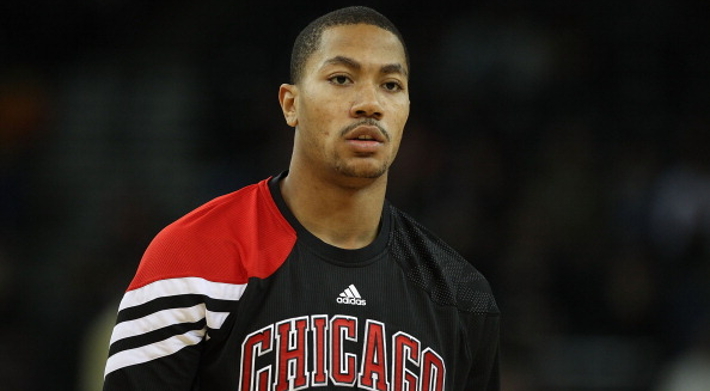
One of the more controversial MVP picks of the last decade, Rose’s MVP season now stands mostly as a monument to what might have been. The interim years haven’t been terribly kind, but his breakout season in Chicago made him the youngest player ever to receive the award, a testament the sheer electricity he brought to NBA arenas on a nightly basis with his explosive athleticism, ball-handling wizardry, and dazzling finishes at the rim.
But Rose also, undoubtedly, had narrative on his side. LeBron had won the award two seasons in a row, and it’s difficult ignore the role that voter fatigue played here, combined with the fallout from The Decision, and the eagerness with which many were ready to anoint anyone but the King. As the league’s fresh-faced young star, Rose made the perfect heir apparent. Regardless of where you stand on it, it’s an impressive feat.
Season: 25.5 points per game, 7.7 assists per game, 4.1 rebounds per game, 1 steal per game, 44.5 percent shooting
10-9. Giannis Antetokounmpo
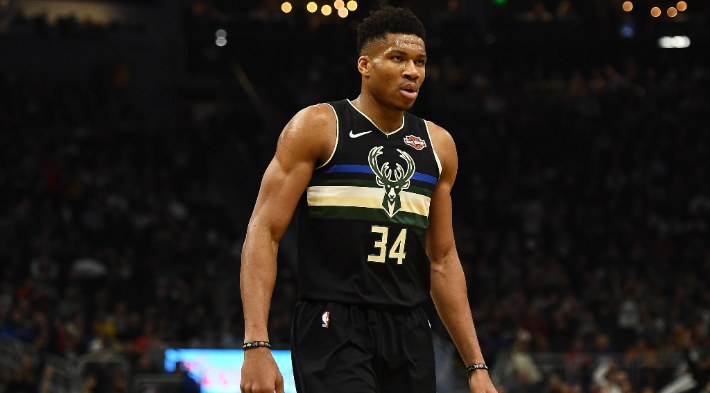
In an era when shooting is at such a premium, Giannis (ahem) bucked the system to remind us that there’s more to basketball than just the long ball. The Greek Freak’s career trajectory had been on a sharp incline since he entered the league as a lanky 19-year-old, and by the 2019 season, Giannis was virtually unstoppable as he led Milwaukee to a league-leading 60-win season.
At 6’11, Giannis has a very different game from Kevin Durant, but the speed and agility they both have at that size defies all logic. By the 2019 season, Giannis had figured out how to put most of the pieces together, scoring at will and defending at such a high level that it transformed him into a perennial Defensive Player of the Year candidate, an award he would win the following season.
It’s probably unfair for the purposes of this ranking, but it’s hard to separate his regular-season success from his postseason shortfalls, which have become a sort of retroactive referendum on the parts of his game where there is still plenty of room for growth.
Season (2019): 27.7 points per game, 12.5 rebounds per game, 5.9 assists per game, 1.5 blocks per game, 1.3 steals per game, 57.8 percent shooting
Season (2020): 29.5 points per game, 13.6 rebounds per game, 5.6 assists per game, 1 steal per game, 1 block per game, 54.4 percent shooting
8. LeBron James (2012)
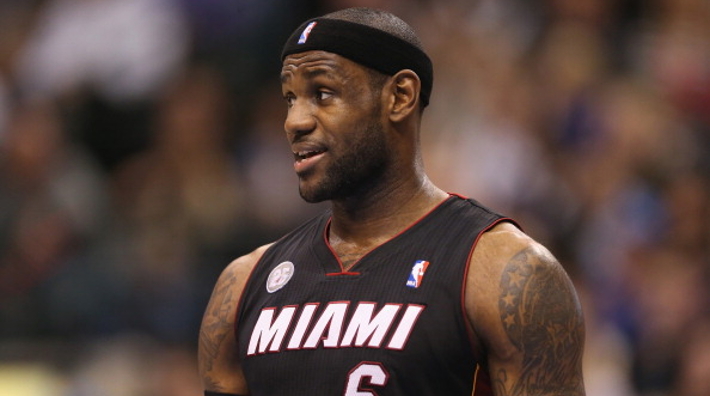
LeBron claims he didn’t leave his bedroom for two weeks after losing to the Mavs in the 2011 Finals. But it was ultimately that dark night of the soul that led him and the Heat back out on the warpath again the following season to atone for their shortcomings.
That’s exactly what they did, and a major catalyst for that was LeBron’s willingness to finally embrace top dog status in the Heat pecking order. After the confusion and uncertainty of trying to defer to Wade and Bosh at times the previous season and achieve an unattainable equilibrium, his return to MVP status clarified the Heat’s identity and put them on the path to their first championship together.
Season: 27.1 points per game, 7.9 rebounds per game, 6.2 assists per game, 1.9 steals per game, 0.8 blocks per game, 53.1 percent shooting
7. James Harden (2018)
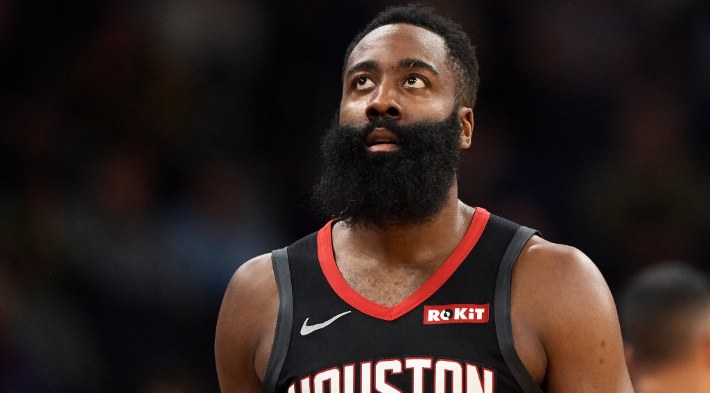
Russell Westbrook’s historic stat lines overshadowed Harden’s own accomplishments the previous season, but to be clear, there was a small but vocal contingent of pundits who believed Harden was more deserving of the award that year, and the Beard certainly benefited from this line of thinking the following season.
That’s not to say Harden was undeserving. If Westbrook had taken his game to a statistical extreme, Harden had embarked on a different kind of data-driven quest for glory behind the Morey-D’Antoni Rockets, who had effectively stripped the game down to a math equation. Harden’s monk-like commitment to threes, layups, and free throws turned him into the league’s most unstoppable offensive force, and one of its most polarizing figures.
Season: 30.4 points per game, 8.8 assists per game, 5.4 rebounds per game, 1.8 steals per game, 44.9 percent shooting, 36.7 percent three-point shooting, 85.8 percent free throw shooting
6. Kevin Durant (2014)
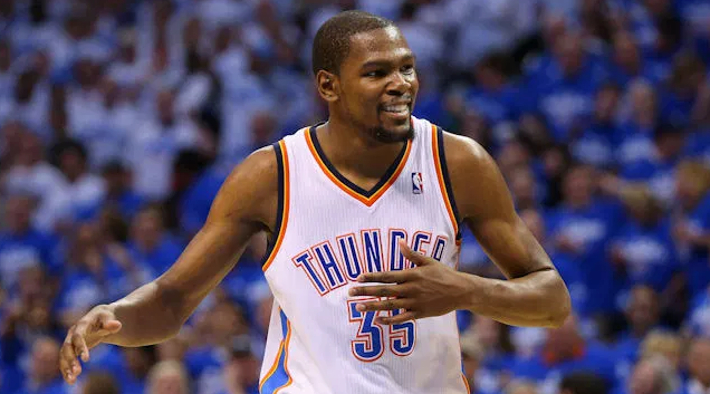
This one gets bumped up a few notches strictly for his unforgettable acceptance speech, during which a tearful Durant used his nationally-televised platform to honor his mother for all the sacrifices she made that helped him achieve his dreams. We’re getting misty again just thinking about it.
On the court, this was Durant in full possession of his powers, a 6’11 scoring machine who was lethal from anywhere on the court and whose efficiency elevated him above the other great scorers of the past. Durant’s length made his jump shot un-guardable, and combined with the speed and ball-handling of point guards that are a full foot shorter than him, it made him an all-around offensive threat the likes of which we’d never seen.
Season: 32 points per game, 7.4 rebounds per game, 5.5 assists per game, 1.3 steals per game, 50.3 percent shooting, 39.1 percent three-point shooting, 87.3 percent free throw shooting
5. LeBron James (2010)
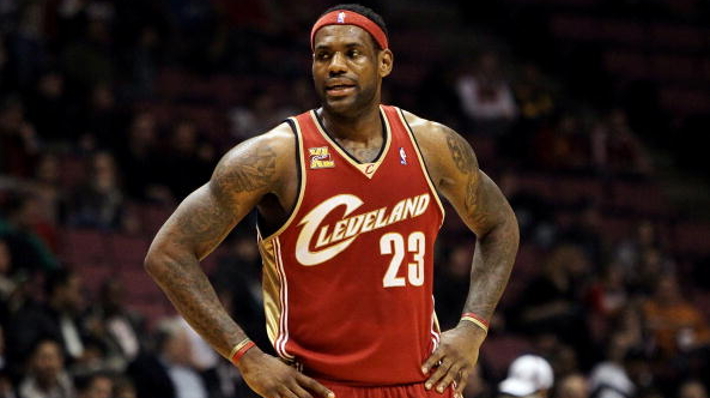
LeBron’s final season in Cleveland (the first time around) was no less remarkable for how he carried a subpar team to a 61-win season. It would end in heartbreak, of course, at the hands of the Celtics, a perpetual thorn in LeBron’s side in the early days of his career with the Cavs.
Despite his incredible play and their regular season success, it stands as a testament to the folly of relying on a single player to do it all, especially when it comes to the gauntlet that is the postseason. It was a lesson sorely learned by the Cavs front office and ownership. LeBron finally reached the end of his rope this season, and the gaudy MVP numbers are proof-positive that he’d done everything in his power to lead his team to the promised land.
Season: 29.7 points per game, 8.6 assists per game, 7.3 rebounds per game, 1.6 steals per game, 1 block per game, 50.3 percent shooting
4. Steph Curry (2015)
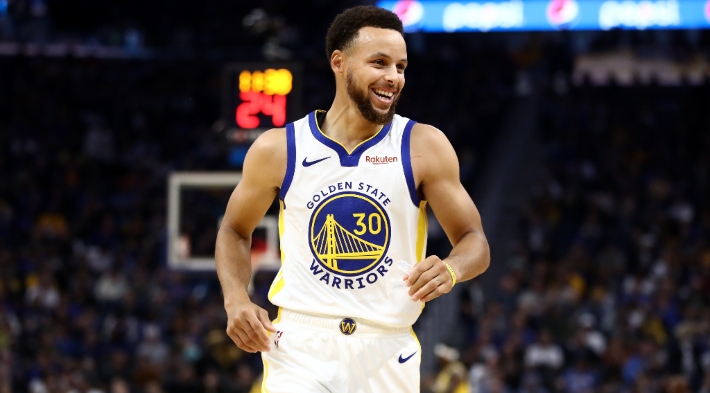
The 2015 version of Steph Curry was just beginning to open our eyes to what was to come. The three-point revolution was upon us, and who better to lead it than the precocious point guard from Davidson who flew under so many people’s radars right up to the point that he changed basketball forever.
Of course, the raw numbers don’t compare to what he would do the following season, but all the seeds were already planted: his ability to embarrass defenders off the dribble, his gloriously-reckless shot-selection, and the unapologetic swagger that accompanied it all. And come to find out, it was all just an appetizer for the main course that followed.
Season: 23.8 points per game, 7.7 assists per game, 4.3 rebounds per game, 2 steals per game, 48.7 percent shooting, 44.3 percent three-point shooting, 91.4 percent free throw shooting
3. Russell Westbrook (2017)
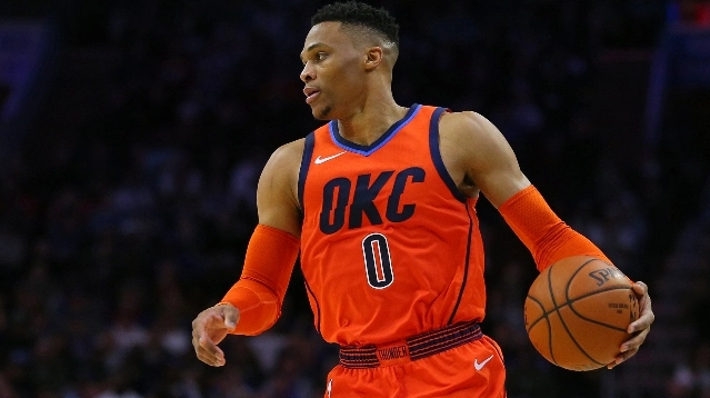
Oscar Robertson averaging a triple-double for an entire year was, quite simply, one of the greatest statistical feats in basketball history. Few believed it was possible in the modern NBA … right up until Westbrook did it. But it’s impossible to fully process how it came to be without putting it in its proper context and understanding what fueled it.
OKC had blown a 3-1 lead to the Warriors the previous season, and adding insult to injury, Durant opted to leave in free agency to join that very Warriors team. Somehow, Westbrook was able to channel all that frustration and competitive fire into his game on a nightly basis, and the result was one mind-boggling triple-double after another.
Westbrook approached each game with a level of fury we might never see again. It was the Anger of Achilles in basketball form, and it was an extraordinary thing to watch.
Season: 31.6 points per game, 10.7 rebounds per game, 10.4 assists per game, 1.6 steals per game
2. LeBron James (2013)
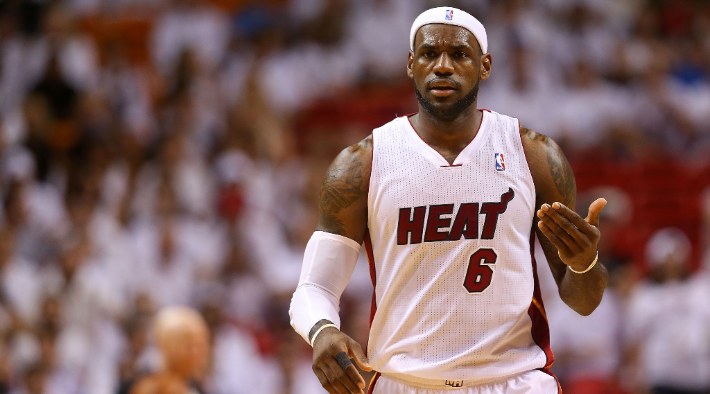
This was LeBron at his absolute most terrifying. Fresh off his first championship, the enormous weight of expectation had lifted, and LeBron played with a joy and freedom not seen since his early days in Cleveland. Not only that, he’d taken his game to the next level in several categories.
Seemingly overnight, LeBron had figured out how to effectively use his size and strength to dominate defenders in the post and had become a reliable three-point threat. Behind his otherworldly play, the Heat rattled off 27-straight wins during one stretch of that season en route to their second-straight title.
The other part that often gets overlooked here is that LeBron fell just one vote shy of becoming the first-ever unanimous MVP, a distinction that would eventually go to the next player on this list.
Season: 26.8 points per game, 8 rebounds per game, 7.3 assists per game, 1.7 steals per game, 0.9 blocks per game, 56.5 percent shooting, 40.6 percent three-point shooting
1. Steph Curry (2016)

There’s no reason to overthink this. Building off his first championship and first MVP award, Curry’s 2016 campaign will go down as one of the best of all-time, not just of the past decade. In the process, he seized the crown as the undisputed greatest shooter in NBA history.
The Warriors were like touring rock stars that season, with hordes of fans flocking to arenas early to try and catch a glimpse of Curry’s warm-up routine, which was going viral on an almost nightly basis. During games, he would demoralize teams with scoring outbursts, going off for 20-plus point quarters or knocking down back-to-back-to-back three-pointers from long-range.
Nobody had ever taken such a high volume of threes, with added degrees of difficulty, and made them with such efficiency. And his influence on the game is virtually immeasurable. It’s not an overstatement to say he’s helped change the way basketball is played around the world, and the ripple effects from that 2016 season will be felt for years to come.
Season: 30.1 points per game, 6.7 assists per game, 5.4 rebounds per game, 2.1 steals per game, 50.4 percent shooting, 45.4 percent three-point shooting, 90.8 percent free throw shooting







